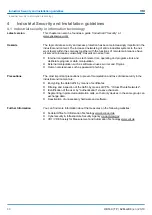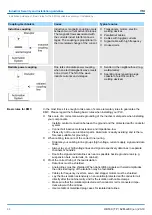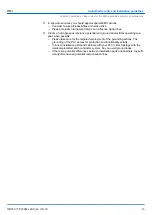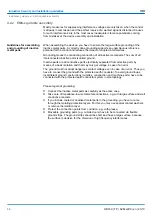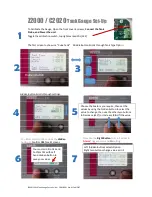
n
Avoid cables with foil-type screens as the foil can be easily damaged by tension and
pressure at the point of attachment; this can result in reduced effectiveness of the
screening action.
n
As a rule you should always ground the screens of cables on both ends. This is the
only way in which you can ensure that high frequency interference is attenuated prop-
erly.
In exceptional cases it may be necessary to ground the screen on one side only. How-
ever, this will only attenuate the lowest frequencies. The one-sided grounding of screens
may provide advantages when:
n
It is not possible to install an equipotential bonding conductor
n
Analogue signals (a few mV or mA) must be transmitted
n
Foil-type screening (static screening) is employed.
You should always use metallic or metallised covers for serial data lines. Connect the
screen of the data line to the cover. Do
not
connect the screen to PIN 1 of the connector!
In case of stationary operations it is recommended that the remove the insulation from
the screened cable without cutting the screen and to attach this point to the screening/
neutral rail.
Potential differences can give rise to an equalization current via the
screen connected between the two ground connections. In this case you
must install an additional equipotential bonding conductor.
Please observe the following points when you handle the screens:
n
Use only metallic cable clamps when connecting the screening of cables. These
clamps must provide a good electrical contact and a large-surface connection to the
screen.
n
Attach the screens to the screening rail directly at the point where the cables enter
the enclosure. The screening conductor must be continued to the module without
interruption, however, it must not be connected to the module!
One-sided grounding of
screens
Connecting the screen
HMI
Industrial Security and Installation guidelines
Installation guidelines > EMC-equitable cabling
HB160 | TP | 62M-JJK0 | en | 23-10
49






